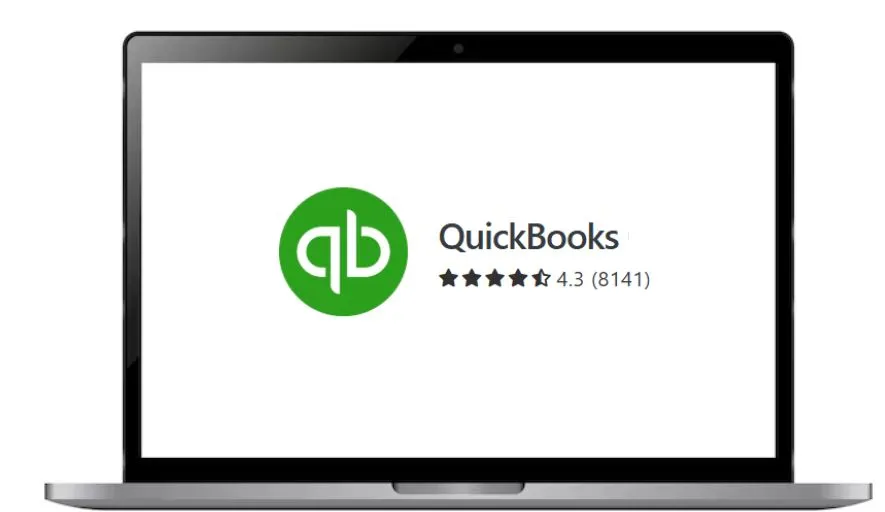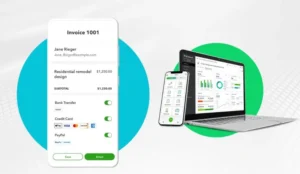In the ever-evolving landscape of small business finance, one name consistently stands out: QuickBooks. For decades, it has been the go-to accounting software for millions of businesses worldwide. As we look towards 2025, QuickBooks continues to adapt and innovate, solidifying its position as a dominant force. But how does it truly stack up, and what can businesses expect from it in the coming years?
This post delves into a comprehensive look at QuickBooks Reviews, examining its core features, user ratings, advantages, disadvantages, and its projected trajectory.
The QuickBooks Ecosystem: A Brief Overview
Before diving into specifics, it’s crucial to understand that QuickBooks isn’t just one product. It’s an ecosystem tailored to different business sizes and needs:
QuickBooks Online (QBO): The most popular and rapidly evolving cloud-based version, available in multiple tiers (Simple Start, Essentials, Plus, Advanced). This is the future of QuickBooks.
QuickBooks Desktop (QBD): Traditional desktop software (Pro, Premier, Enterprise) that is purchased and installed on a computer. While still widely used, its development is less prioritized than QBO.
QuickBooks Self-Employed: Designed specifically for freelancers, contractors, and sole proprietors to track income, expenses, and tax deductions.
QuickBooks Payroll & Payments: Integrated services for managing employee payroll and processing customer payments.
For the purpose of a forward-looking review into 2025, our primary focus will be on QuickBooks Online, as it represents the direction Intuit is taking the brand.
Key Features Anticipated & Refined
QuickBooks Online (QBO) consistently updates its features, and we can expect continued enhancements in these core areas:
1. Intuitive Invoicing & Payments:
- Expected: Seamless creation of professional invoices, recurring invoices, and automated payment reminders. Enhanced payment options (credit card, ACH, Apple Pay, Google Pay) directly within invoices.
2. Automated Expense Tracking & Categorization:
- Highly sophisticated bank and credit card integrations for automatic transaction import. AI-driven categorization suggestions, potentially leveraging machine learning to improve accuracy over time. Receipt capture through mobile apps will be even more robust.
3. Comprehensive Financial Reporting:
- A wide array of customizable reports (Profit & Loss, Balance Sheet, Sales by Customer, Expense by Vendor, etc.). Improved dashboard analytics with more granular visual insights, potentially integrating basic predictive analytics.
4. Bank Reconciliation & Cash Flow Management:
- Streamlined reconciliation processes with improved matching algorithms. More advanced cash flow forecasting tools, helping businesses anticipate liquidity.
5. Inventory Management (QBO Plus/Advanced):
- Enhanced tracking of products, cost of goods sold, and inventory valuation for businesses that sell physical goods. Potentially better integration with e-commerce platforms.
6. Payroll Integration:
- Deeply integrated payroll services (QuickBooks Payroll) for calculating wages, taxes, and managing direct deposits. Increased automation in tax form generation and compliance.
7. Tax Preparation Support:
- Easy generation of necessary reports for tax filing, and direct integration with TurboTax (another Intuit product) for streamlined personal and business tax preparation.
8. Third-Party Integrations:
- A vast marketplace of apps that connect QuickBooks with CRM, e-commerce, time tracking, project management, and other industry-specific tools. This ecosystem is a major strength.
9. Mobile Accessibility:
- A fully functional and intuitive mobile app for managing finances on the go, including invoicing, expense tracking, and basic reporting.
User Reviews & Ratings:
QuickBooks generally receives high ratings across popular software review platforms (e.g., Capterra, G2, Trustpilot), often hovering in the 4.0 to 4.5 out of 5 stars range.
Common Themes in Positive Reviews:
Industry Standard: Many users appreciate its ubiquity, making it easy to find accountants familiar with the software.
Comprehensive Features: It offers a robust set of tools that cover most small business accounting needs.
Scalability: The different QBO tiers allow businesses to grow with the software without needing to switch platforms.
Cloud Accessibility: The ability to access financial data from anywhere, anytime, is a significant advantage.
Reporting: Users frequently praise the depth and customizability of financial reports.
Integrations: The extensive app marketplace is a recurring highlight.
Common Themes in Negative Reviews
Customer Support: This is consistently the most common complaint, with users reporting long wait times, inconsistent advice, and difficulty resolving complex issues. While Intuit invests, this remains a challenge for a company of its scale.
Pricing: The subscription model, especially for higher tiers and add-ons (like payroll), can become expensive for very small businesses.
Learning Curve: While designed to be user-friendly, the sheer number of features can be overwhelming for new users without accounting experience.
Migration Issues: Transferring data from QuickBooks Desktop to Online, or between different QuickBooks Online plans, can sometimes be challenging.
Feature Bloat: Some users feel certain features are unnecessary for their business and contribute to complexity.
Pros of QuickBooks
Unmatched Ecosystem & Integrations: No other accounting software offers such a vast array of third-party apps and integrated services, making it a central hub for business operations.
Scalability & Flexibility: From freelancers to established SMBs, QuickBooks offers a plan that can grow with the business, minimizing the need for painful software migrations.
Robust Reporting & Insights: Provides critical financial data necessary for strategic decision-making and performance analysis.
Accountant-Friendly: It’s the standard for professional bookkeepers and accountants, making collaboration and tax preparation significantly smoother.
Continuous Innovation: Intuit consistently invests in R&D, adding new features, improving user experience, and leveraging AI/ML for automation.
Strong Brand Reputation & Resources: Years of market presence mean a wealth of online tutorials, community forums, and training materials.
Cons of QuickBooks
Cost Can Be a Factor: The monthly subscription fees, especially when adding payroll and other services, can add up, potentially impacting the budget of very small or nascent businesses.
Customer Service Challenges: Despite efforts, inconsistencies and wait times in customer support can be a significant frustration point.
Initial Complexity for Novices: While intuitive, fully leveraging QuickBooks requires a commitment to understanding its functionalities, which can be daunting for those without prior accounting exposure.
Reliance on Internet (QBO): As a cloud-based solution, a stable internet connection is essential for QuickBooks Online.
Feature Overload: For very simple businesses, the extensive features can feel like overkill, leading to a desire for a more streamlined, basic solution.
QuickBooks’ Trajectory into 2025 and Beyond
Intuit’s strategy for QuickBooks is clear: cloud dominance, AI-driven automation, and deeper financial insights.
Hyper-Automation: Expect QuickBooks to lean heavily into AI and machine learning for even more sophisticated transaction categorization, anomaly detection, and automated workflows (e.g., smart bill pay, automated reminders based on cash flow).
Enhanced Predictive Analytics: Moving beyond just reporting past data, QuickBooks will likely offer more robust forecasting tools to help businesses make proactive decisions about cash flow, sales, and expenses.
Vertical-Specific Offerings: While already present to some extent, Intuit may further tailor specific features or integrations for niche industries (e.g., retail, construction, professional services).
Financial Services Integration: Expect tighter integration with payment processing, lending, and other financial services directly within the QuickBooks platform, making it a true financial operating system.
Continued QBO Focus: Development resources will overwhelmingly favor QuickBooks Online, with QuickBooks Desktop likely seeing only critical maintenance and security updates.
Conclusion: Is QuickBooks Right for Your Business
QuickBooks remains a powerhouse in the small business accounting software space, and its position is unlikely to diminish by 2025. Its comprehensive feature set, vast integration ecosystem, and continuous innovation make it a highly capable solution for a wide range of businesses.
QuickBooks will be an excellent choice for businesses that:
- Are growing or plan to grow and need a scalable solution.
- Require robust reporting and detailed financial insights.
- Work with accountants or bookkeepers who prefer or require QuickBooks.
- Value cloud accessibility and a mobile-first approach.
- Benefit from extensive third-party integrations to streamline operations.
While the pricing and occasional customer support frustrations are valid considerations, the sheer breadth and depth of QuickBooks’ capabilities often outweigh these cons for businesses committed to professional financial management. As we step into 2025, QuickBooks continues to evolve as an indispensable tool, empowering businesses to manage their finances effectively and confidently navigate the future.




